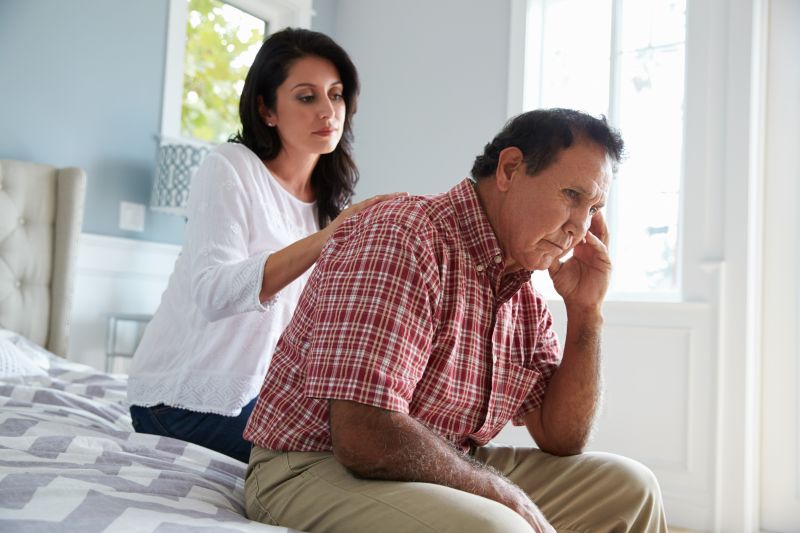Mental disabilities and diseases are many and varied, and determining causes and treatments can be problematic, especially when mental ailments are linked to other diseases. Such is often the case with Sundowning Syndrome – a syndrome often seen in people with dementia and Alzheimer’s.
What is Sundowning Syndrome?
The term Sundowning Syndrome comes from its onset and relation to the setting sun. Patients with this syndrome become more active, agitated, and confused late in the day. This condition makes it more difficult for caregivers and families to properly care for them and meet their needs.
Relation with Dementia
The correlation between dementia and Sundowning is complex, as is often the case with patients experiencing multiple conditions. Dementia can affect the body’s biological clock, causing physical and mental exhaustion. As the day comes to a close, rather than the body readying itself to sleep as is typical in an unafflicted person, people with Sundowning are ready for activity.
The factors causing Sundowning include hormonal imbalances, medications, fatigue from the day, overall brain health, and more.
Alzheimer’s Patients
Not all dementia patients suffer from the syndrome, but it is more common in Alzheimer’s patients, with around a fifth of them experiencing some symptoms of Sundowning. And even in those cases, it can be challenging to tell whether any given evening will bring an attack of Sundowning.
Dementia isn’t one single disease – it’s a collection of symptoms that several different diseases can cause. Sundowning is one of these symptoms. Alzheimer’s is a specific kind of dementia, and because this particular disease has had some research concerning Sundowning, the link is much better understood. Conceptually, it’s simple – we all get tired at the end of the day – they happen to have a disproportionate reaction to this fatigue. This causes the characteristic circadian-related problems of Sundowning, where patients become more active and agitated in the late afternoon/evening.
Sundowning is very stressful for everyone involved. Moreover, it can come as a complete and unpleasant surprise because it is inconsistent and disproportionate.
Recommendations
As anyone who has raised a toddler can attest – it’s essential to watch for signs of fatigue and overstimulation. Once you know that your loved one suffers from Sundowning, you will need to keep an eye on the clock. If you’ve had a big day out, the chances of having a meltdown are higher than if you’ve had a calm day at home.
Just remember that your loved one can go from having a blast to being scared, confused, and violent within the space of minutes. Remember that it’s not their fault. The best idea is to help them stay comfortable and feeling safe to keep them from getting overtired and overstimulated. Even if you do your best, they will still have episodes. Just assume that the evenings are a risky time for them. Try not to have strangers around in the evening. Experiment with calming activities during the daytime when they are more together. Go easy on them – remember that they are more easily confused.
Dr Liz Geriatrics
Being a caregiver for a dementia patient with Sundowning syndrome can be exceptionally challenging and stressful. There can be a “Jekyll and Hyde” nature of the relationship, where your loved one goes from affectionate and humorous to violent and accusatory. Support for caregivers is essential for the caregiver and the patient. Dr Liz Geriatrics can help. Our goal is to educate and support elders and caregivers. We can provide recommendations for your specific circumstances. Contact us at 650-357-8834 x1.

Elizabeth (Dr Liz) has over twenty years of experience in providing medical care to the elders. She is board-certified in Internal Medicine, Geriatric Medicine and Palliative Care Medicine. Dr Landsverk founded ElderConsult Geriatric Medicine, a house calls practice, to address the challenging medical and behavioral issues often facing older patients and their families.


